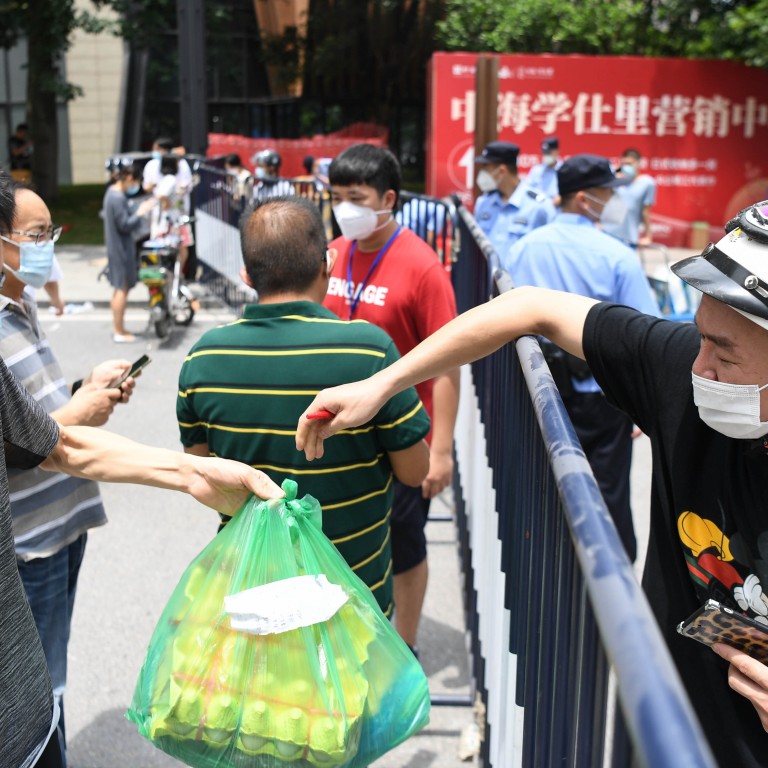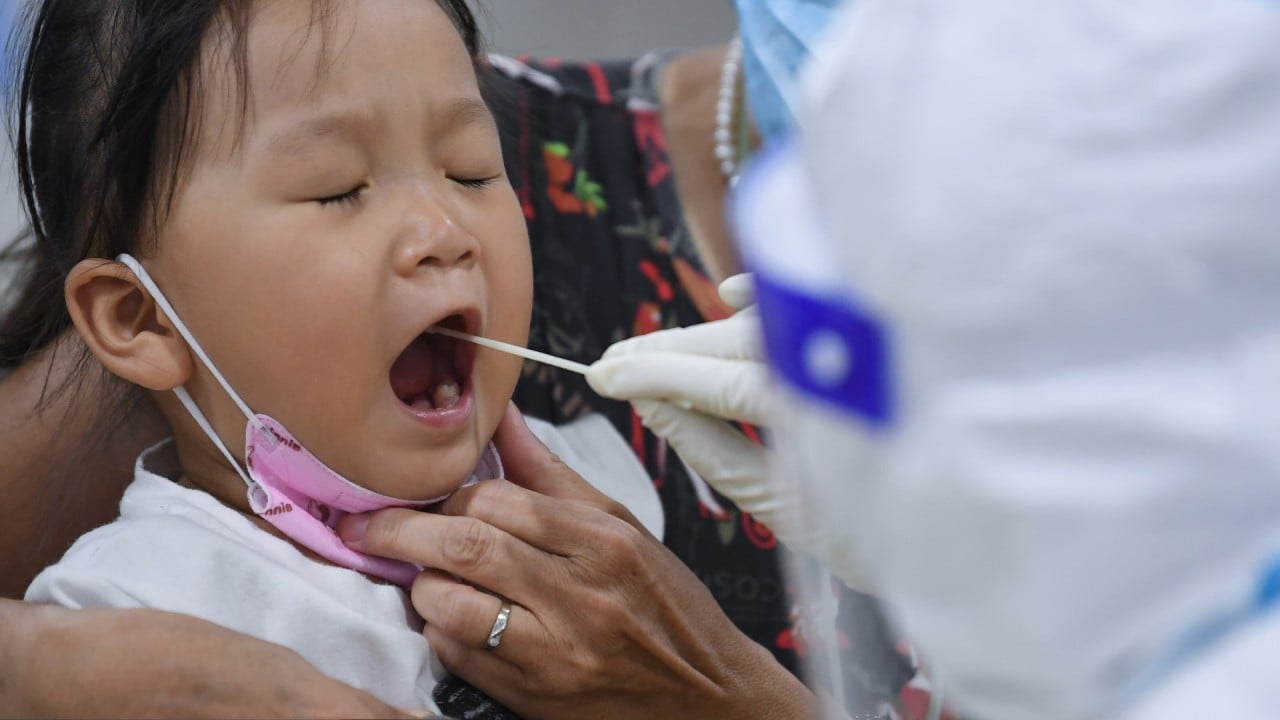
Parts of southern China in lockdown to contain Covid-19 mini-outbreak
- Guangzhou bears the brunt of latest cluster with 38 zones sealed to stop the spread as new infections continue to be identified
- Health officials say fast-spreading Delta variant, first found in India, has made containment challenging
State news agency Xinhua reported on Tuesday that 38 zones in the provincial capital Guangzhou, where the mini-outbreak is concentrated, have been locked down, including the entire Zhongnan community in the city’s Liwan district. Residences and work areas of all infected cases, as well as 37 other exposed venues have been sealed.
With Hong Kong on edge over Covid-19 variants, here’s what you should know
The latest measures follow drastic restrictions on outbound travel from the city to sever transmission routes of the fast-spreading variant, the halting of mass vaccinations to focus on priority groups, and intensified efforts to run viral screenings on local residents.
The source of the latest outbreak was identified on May 21 after a 75-year-old woman dined at a dim sum restaurant in Liwan. Tests revealed she and the other cases were infected with the Covid-19 Delta variant, first found in India.
The variant lineage B. 1.617 was identified in India last October and has been reported in 44 countries as of mid-May, according to the World Health Organization. There are three strains in this lineage, of which the B. 1.617.2 is of particular concern. This strain has been renamed Delta by the WHO in an effort to reduce stigma around where variants emerge.
Mainland public health officials characterised this particular strain of Covid-19 as “fast-spreading, high viral load and comes with a short incubation period”. This has made the latest mini-outbreak in Guangdong particularly challenging, according to mainland officials, who said they had little time to contain the virus from erupting in a community outbreak.
According to the provincial health commission, Guangdong reported 11 new confirmed cases as of the end of Monday, with one of them being a previous asymptomatic case. Health officials in Guangzhou have reported 10 new confirmed cases – with one a previous asymptomatic case – as well as 10 further new asymptomatic cases.

02:02
China’s southern Guangdong province in high gear to quash Covid-19 outbreak
Guangdong province has also identified two imported confirmed cases, one from Cambodia to Guangzhou, and another from the United States to Foshan. Guangzhou has reported eight asymptomatic imported cases – from the United Arab Emirates, US, Chad, Amman, the Philippines, Cambodia and Papua New Guinea.
As of Sunday, Guangdong had recorded a total of 2,468 cases with 1,035 of them imported. Currently, 75 people are in hospital.
Professor David Hui Shu-cheong, a Hong Kong government pandemic adviser, said the cases in Guangzhou had not become a concern for Hong Kong as the latest asymptomatic cases were discovered during lockdown, before a community outbreak occurred.
“This kind of rapid and assertive response is what mainland authorities are always known for, where an entire block would be under lockdown after only one or two cases are identified,” Hui said, adding it was a model Hong Kong had emulated when its fourth wave broke out in January.
“This really worked on the mainland because of its social structure where people are more obedient and the lockdown is implemented with adequate manpower and backed by essential supplies. Mainland officials have to be extremely careful because their political career is at stake as they would be held accountable for poor handling.”

04:12
What do we know so far about the Covid-19 variants?
Provincial Communist Party secretary Li Xi has been highly visible checking on quarantine arrangements and chairing conferences on pandemic control. Curbing the spread of the virus – which has been largely under control in China – is a priority for leaders ahead of the party’s centenary in July and a key session next year that could see a leadership reshuffle.
Zhao Wei, a professor from the school of public health at Southern Medical University, said Guangzhou – a transport hub and entry point for large numbers of people from overseas – had indeed been doing a good job of prevention and control on a daily basis.
“This outbreak, as it stands now, all confirmed cases are on the same chain of transmission, and if it has been maintained this way, it shows that Guangzhou’s prevention and control strategy and monitoring system have withstood the test, and the response is sensitive and fast, which is not easy,” he said.
“Of course, we cannot be too optimistic, and after that, it cannot be ruled out that there is another chain of accidental infections without a clear source, which would be worse.”
Zhao noted mass vaccinations had been paused because it was crucial to avoid people gathering.


